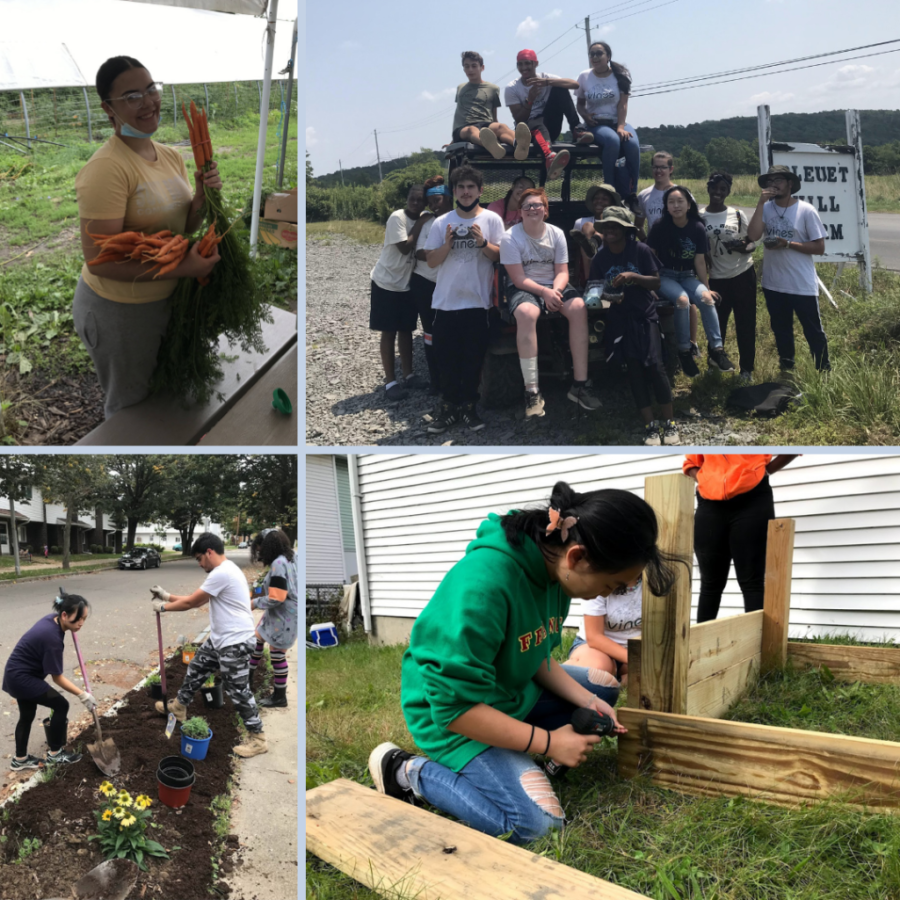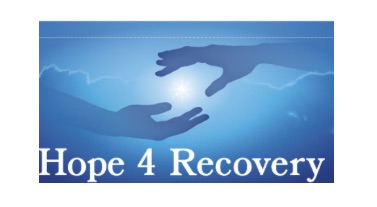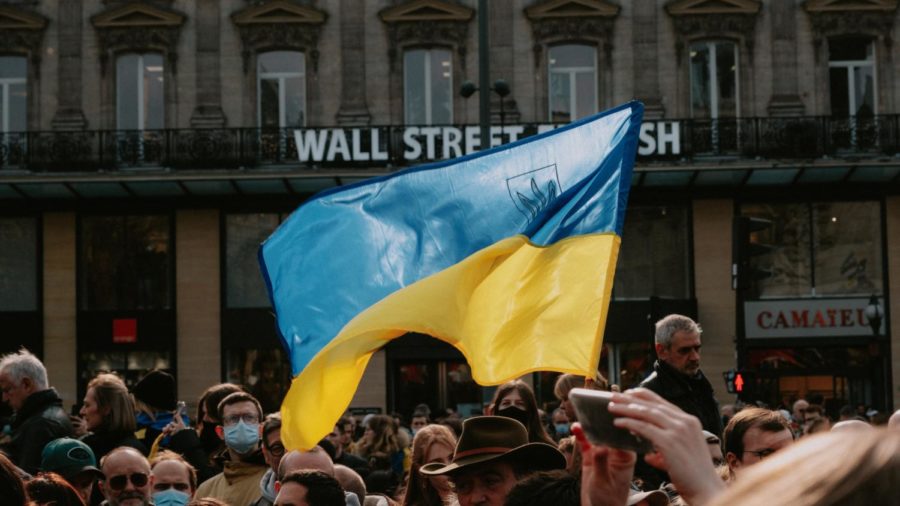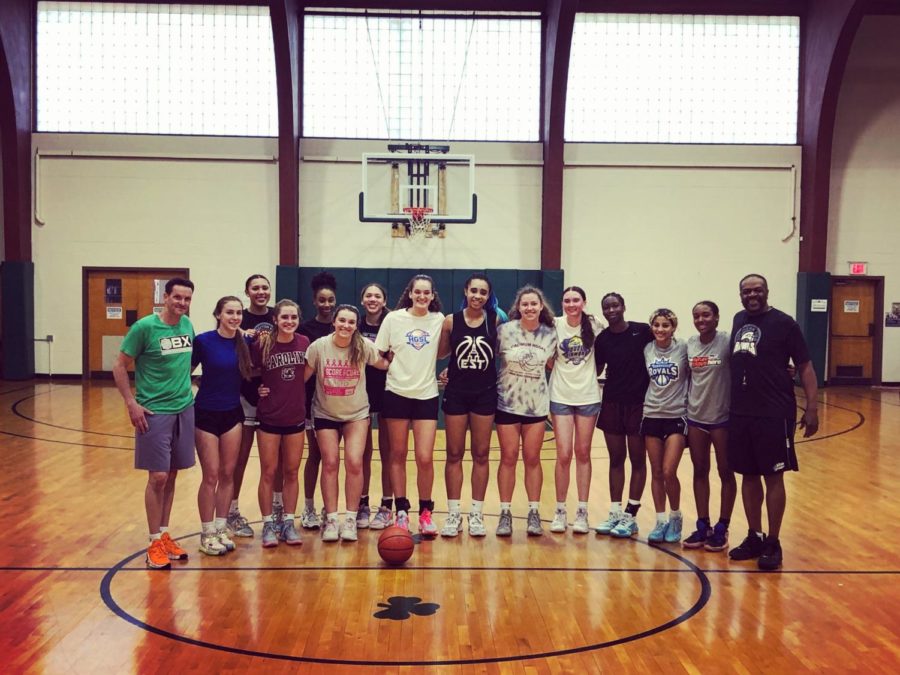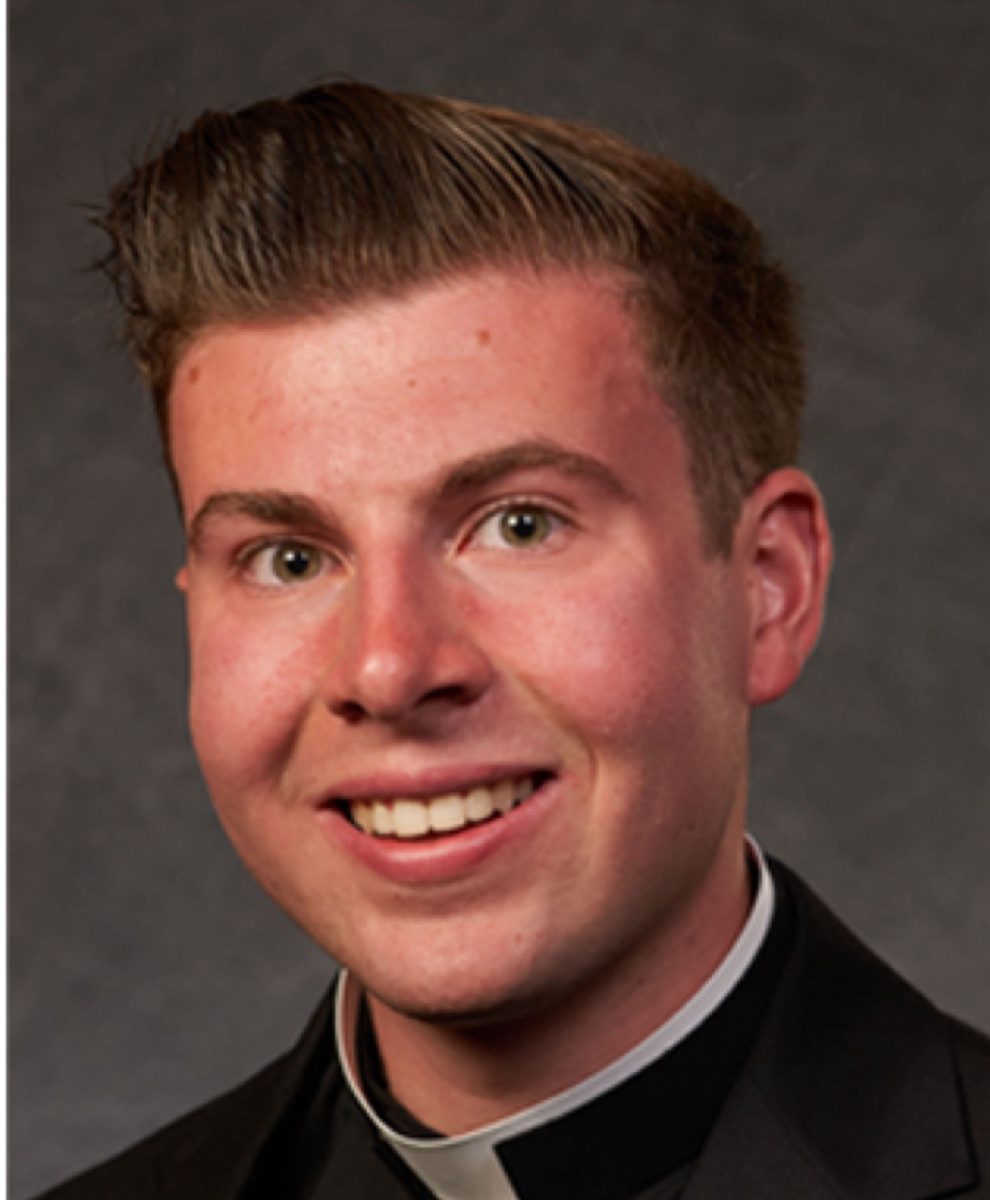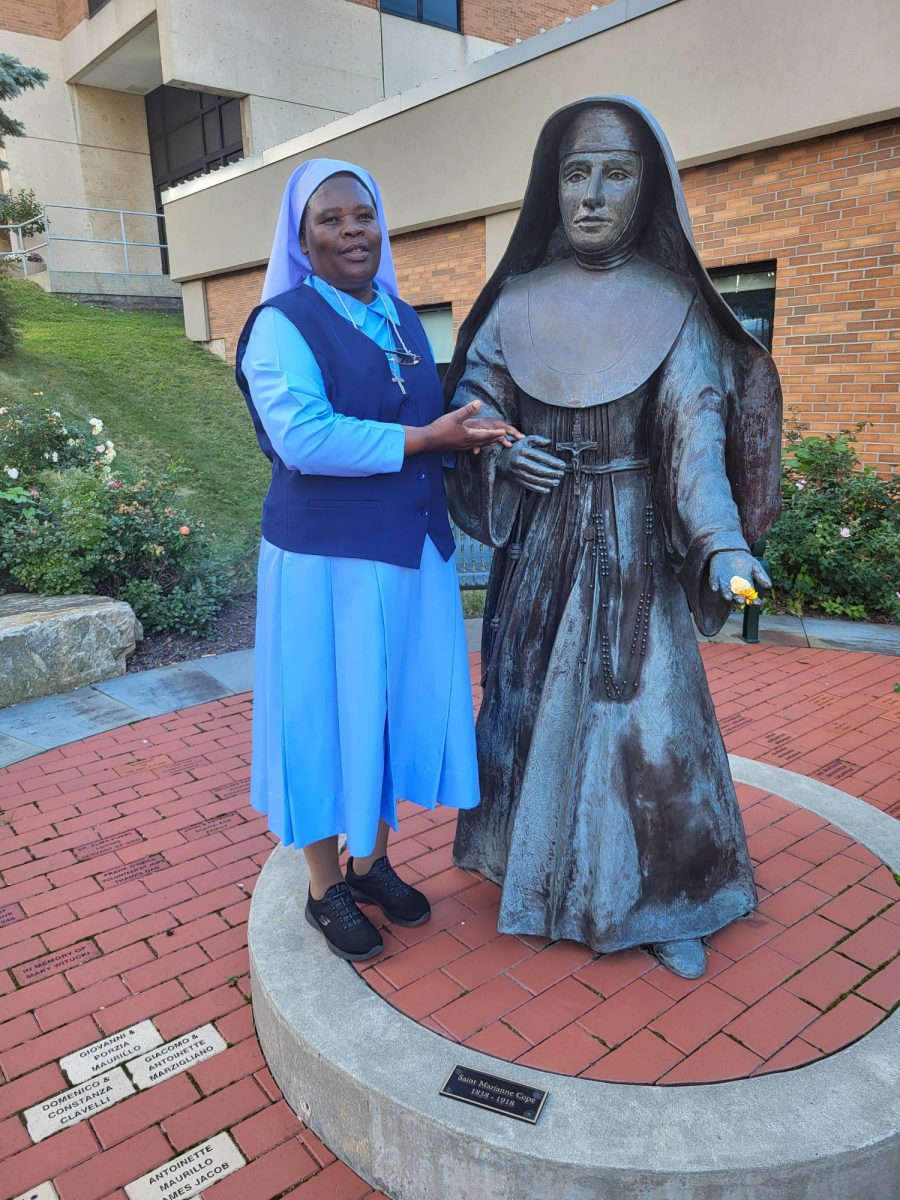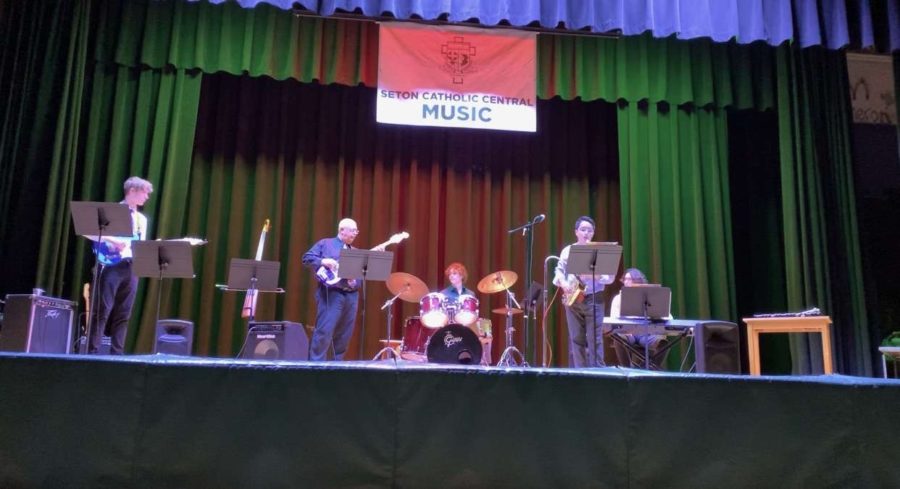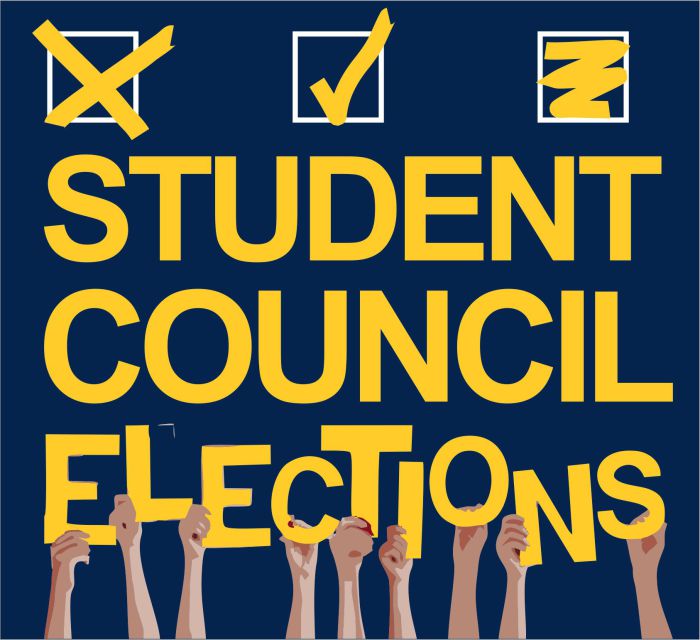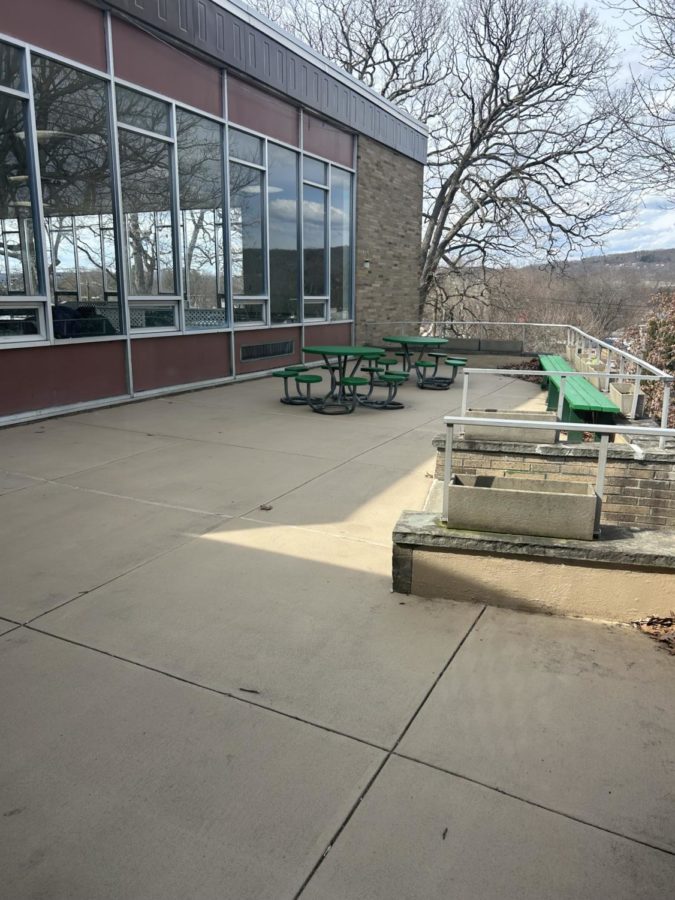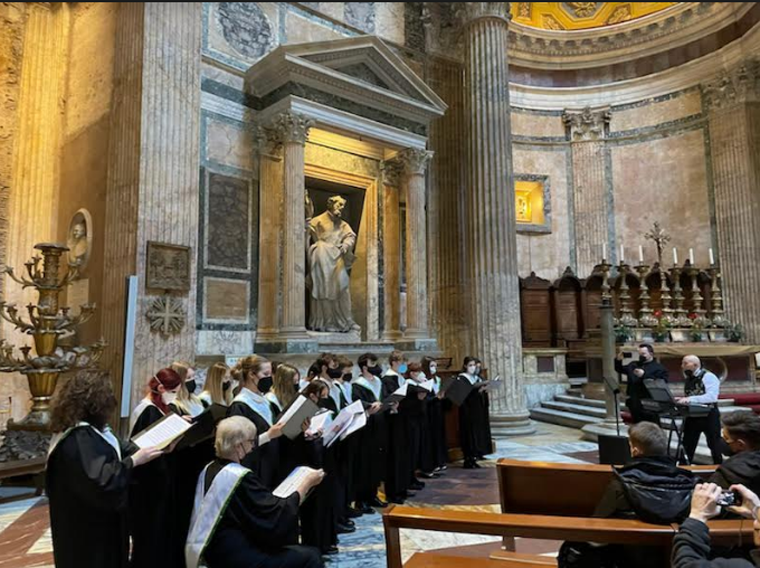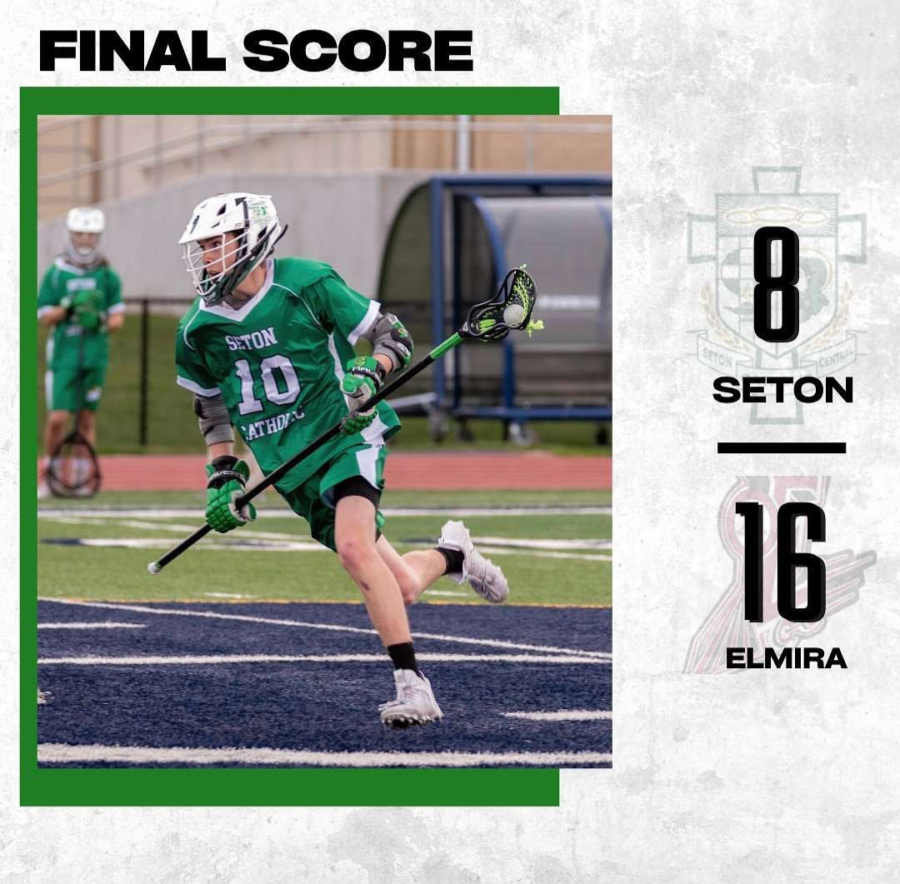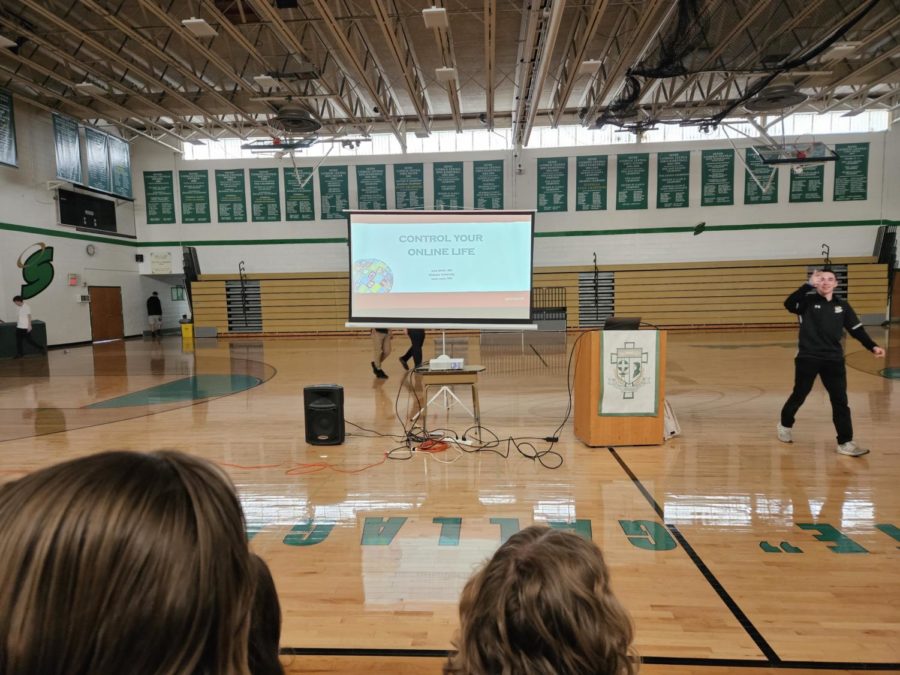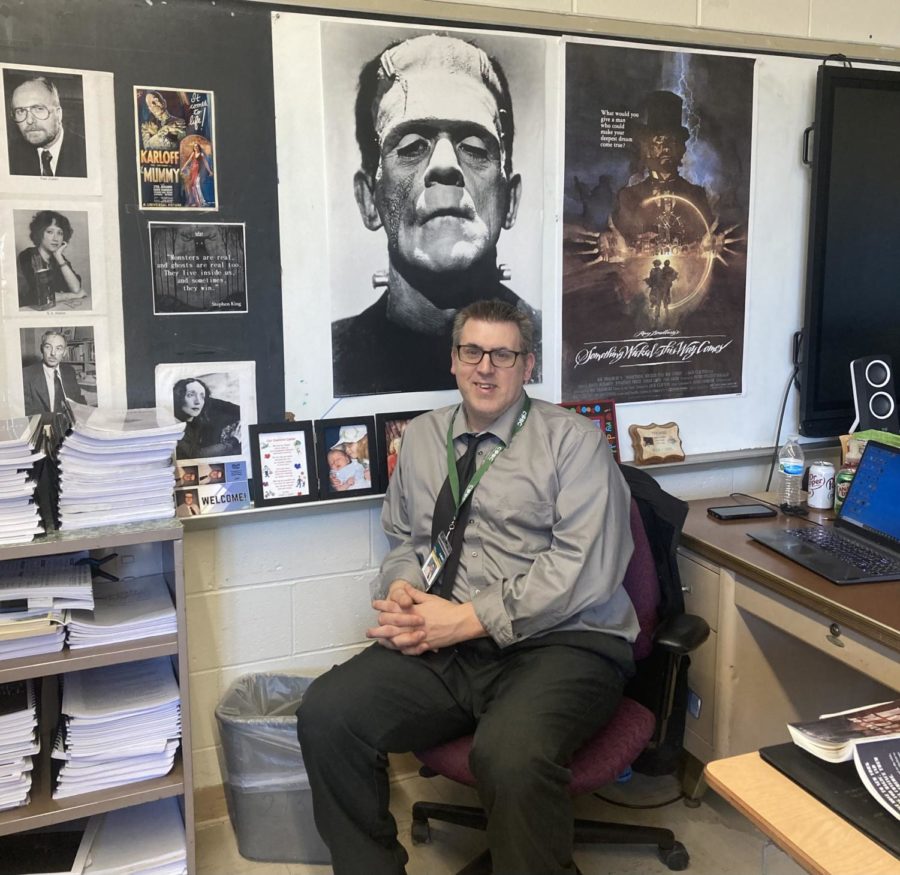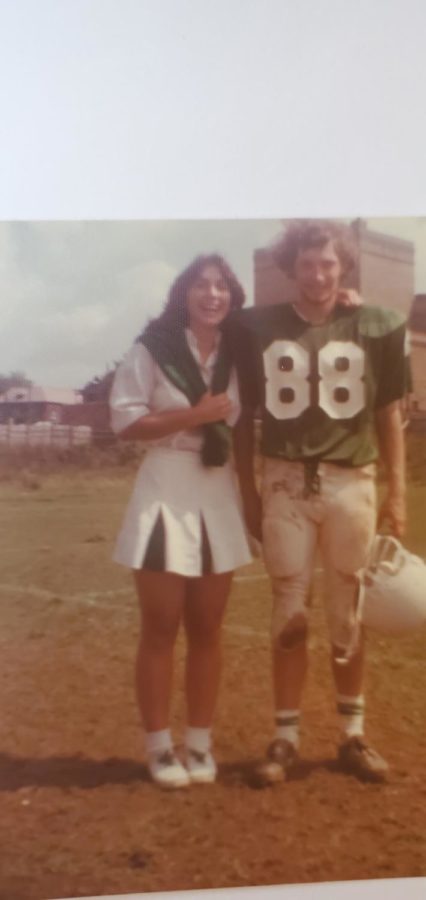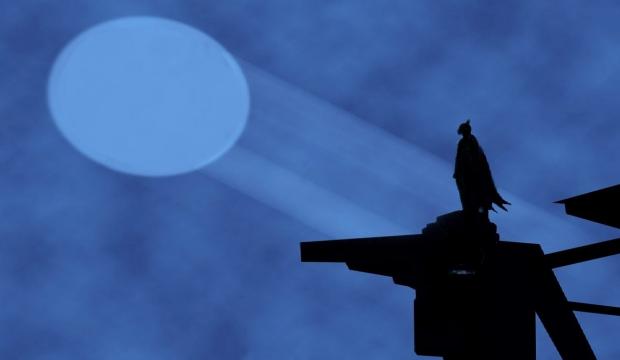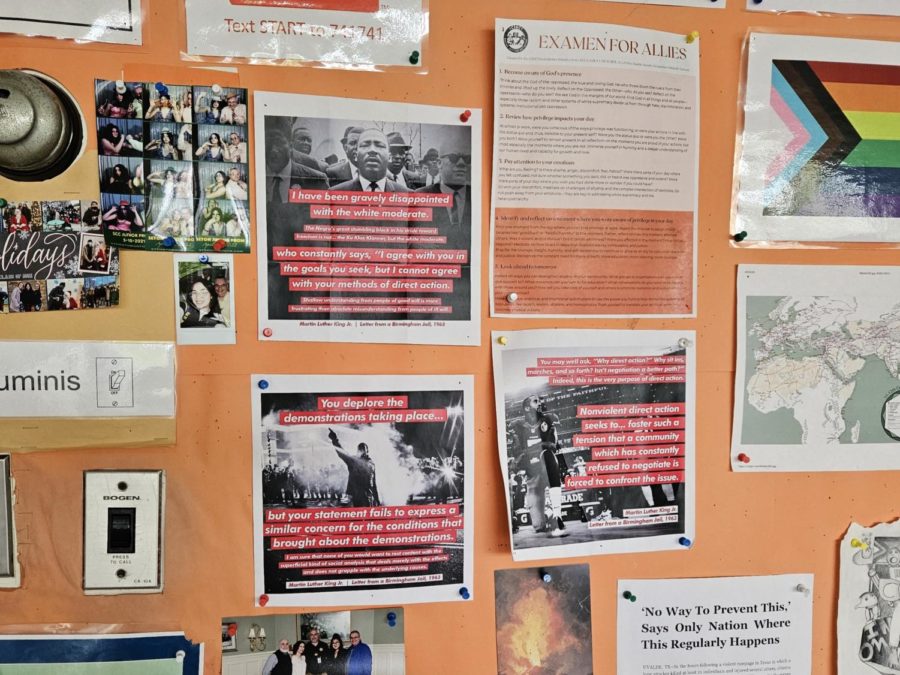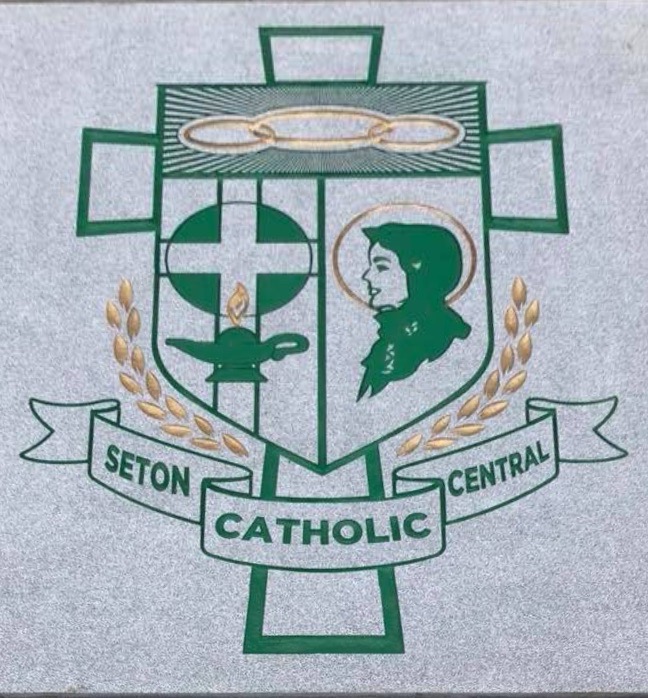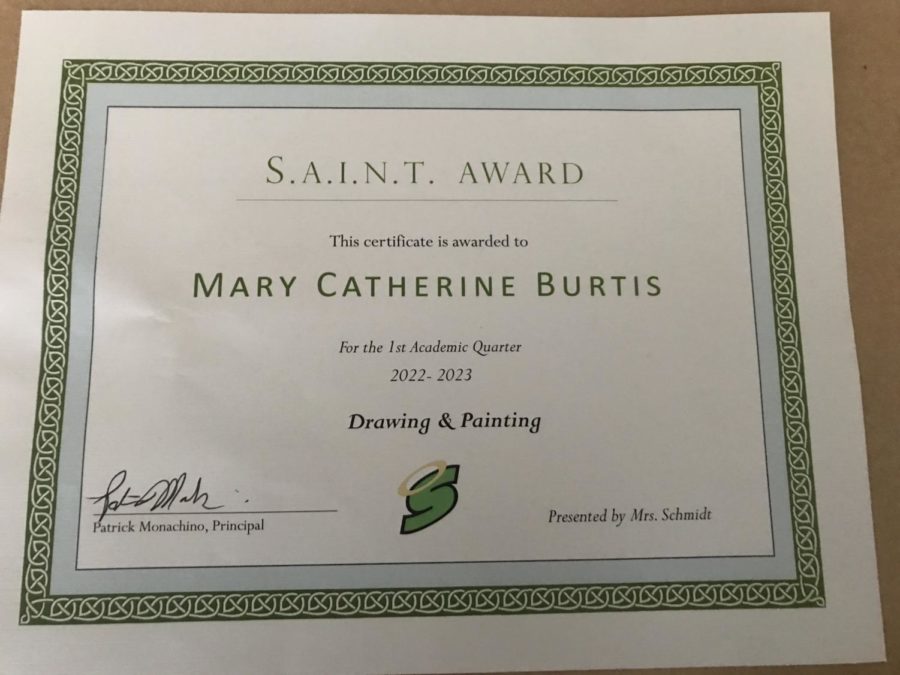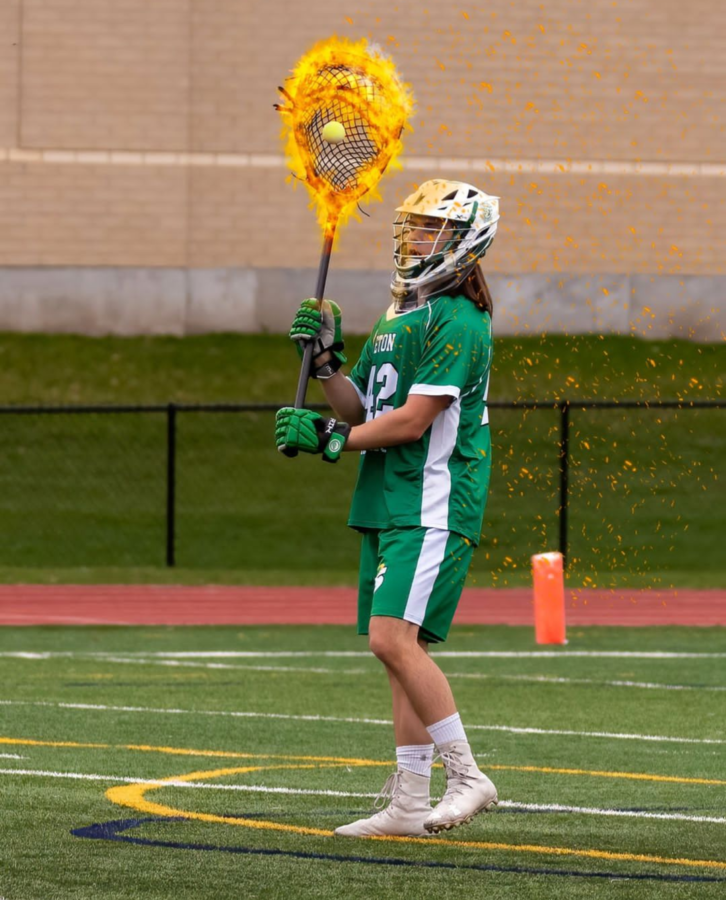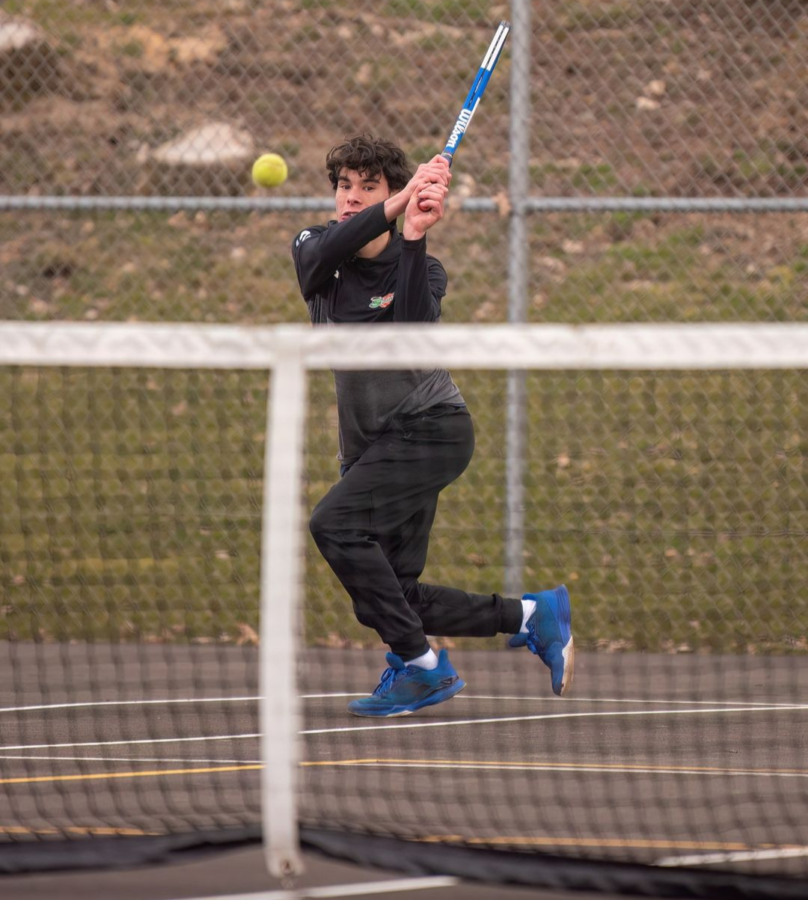Sister Mary Grace’s visit to the US leaves behind a message of hope and resilience, as well as an opportunity to learn for Seton students
“The Blue Nun,” as Seton teacher, Mr. Phillips, has identified Sister Mary Grace to his students, attended several classes this October during her US visit in order to speak about the troubled history of Uganda as well as its promise.
After militant forces attacked her village in Gulu, Uganda when she was 12 years old, Sister Grace was displaced alongside countless others to nearby urban towns where those who’d been dragged out of their homes were kept together in cramped, crowded sleeping areas. Most of them children, the conflict that erupted between rebel groups and the government, left many to flee from their rural villages for fear of being killed or captured. Sister Grace, who was among the children that suffered this exodus, went on to join the faith service at the age of 22. Having dreamt of becoming a Sister since she first stepped foot in her first communion white dress, Sister Mary Grace is now the Superior General of the Little Sisters of Mary Immaculate of Gulu. Now, alongside her fellow sisters, she is dedicated to helping Northern Uganda recover from the ravages of a 20-year-long conflict and re-institute a mission of hope.
A History of Violence and Community in Northern Uganda
Since Uganda’s independence in 1962, the country has exhibited a tumultuous and complicated history of conflict and violence. Complicated by ethnic tensions and British involvement, Uganda has seen its fair share of militias and violent uprisings. As recently as 2021, President Yoweri Museveni won his 6th term in office, amounting to now 37 years in office, allegations of electoral fraud, corruption, and military assaults surfaced given his presidential streak. Seventy percent of Uganda’s population is below the age of 35, meaning that most Ugandans haven’t even seen another president in power since birth. Museveni’s rule was preceded by Idi Amin, a ruthless military leader, whose brutal and torturous policy towards ethnic minorities and political dissenters during the 1970s earned him the title, ‘The Butcher of Uganda.’ Museveni’s rise to power in 1986 was coupled with the rise of the Lord’s Liberation Army, a rebel group that would eventually come under the leadership of Joseph Kony, a self-proclaimed ‘messiah’; mass-murderer; and one of Africa’s most wanted warlords for his war crimes against civilians, including the abduction of children to become child soldiers and sex slaves. Having been drained of available resources for health and education budgets in order to fuel military expenditures, Northern Uganda is now one of the most economically neglected and politically unstable regions in Africa.
Aside from providing aid in fractured areas such as education and health, Mr. Phillips, who has long developed a relationship with the humanitarian mission in Uganda, says one of the most important forms of aid to consider is the reconciliation process for the many affected by regional conflict and unrest. The Sisters’ mission of community outreach “to the most vulnerable” is just an extension of that.
The Mission of the Little Sisters of Mary Immaculate of Gulu
On her visit to the US, Sister Grace visited several of her fellow Sisters stationed in different parts of the country. Among them were Sister Cecilia Draru and Sister Grace Otto, who are both stationed in Scranton, and Sister Mary Rose Attu, who is stationed in Hawaii. Most of the Sisters stationed in the US are either here to pursue their education, provided for by scholarships and funding from their organization, or to work in hospital care, where they work with different parishioners also stationed there. In Uganda, the Little Sisters of Mary Immaculate work primarily to provide support for women and children in primary health care and education.
Where books and supplies are scarce and school fees are so high that food is most likely prioritized by families, education is one of the most heavily mistreated areas of life in Uganda. Being educated as teachers, the Little Sisters are dedicated to uplifting the women in their community, having erected several institutions of education from the pre-primary level to the university level. The Sisters perform missionary services for the underprivileged and neglected, and women in Northern Uganda are at the forefront of that mission. Once young girls start to learn above the primary level, they are eligible for continued vocational studies, and once they achieve an education at the university level and beyond, they return and devote themselves to the same classroom they once sat in, thus replenishing a system of accessible education to young girls.
According to Sister Grace, the Little Sisters primarily work to petition wealthier families who are lucky enough to provide their children with a good education to extend that privilege to children who can not afford their school fees. “We usually call for meetings of the parents and share with them the situation of other children,” Sister Grace says. Furthermore, the Sisters appeal to the parish, in which they ask for donations from Christian attendees. The US dollar, especially when driven by mission appeals from Ugandan visitors to raise awareness and financial support for their mission work, also goes a long way.
“The clothes on your backs and the shoes on your feet”
In her concluding address to a dejected, Morning class of high school juniors, Sister Grace looks at the 15 to 20 students, each sitting in evenly spaced, individual desks, in front of a costly Promethean board, and remarks: “How lucky you are.”
It becomes harder and harder to really hear it, right? Students are assigned privilege, and yet they have no idea what to do with it. When considering the nature of Uganda’s plight, what can they learn from it exactly? They’re not ravaged by war; their families can most likely afford and sustain their private education; and they probably will never fully realize what food insecurity, or regional displacement can mean for a young child, having been run off from their homes by violence. But the Little Sisters’ work is a service towards a community; they choose to return to the vulnerable and the less fortunate because that is their privilege. To uplift the most marginalized and isolated is to uplift an entire country, region, or school, and that is what should be considered true privilege.

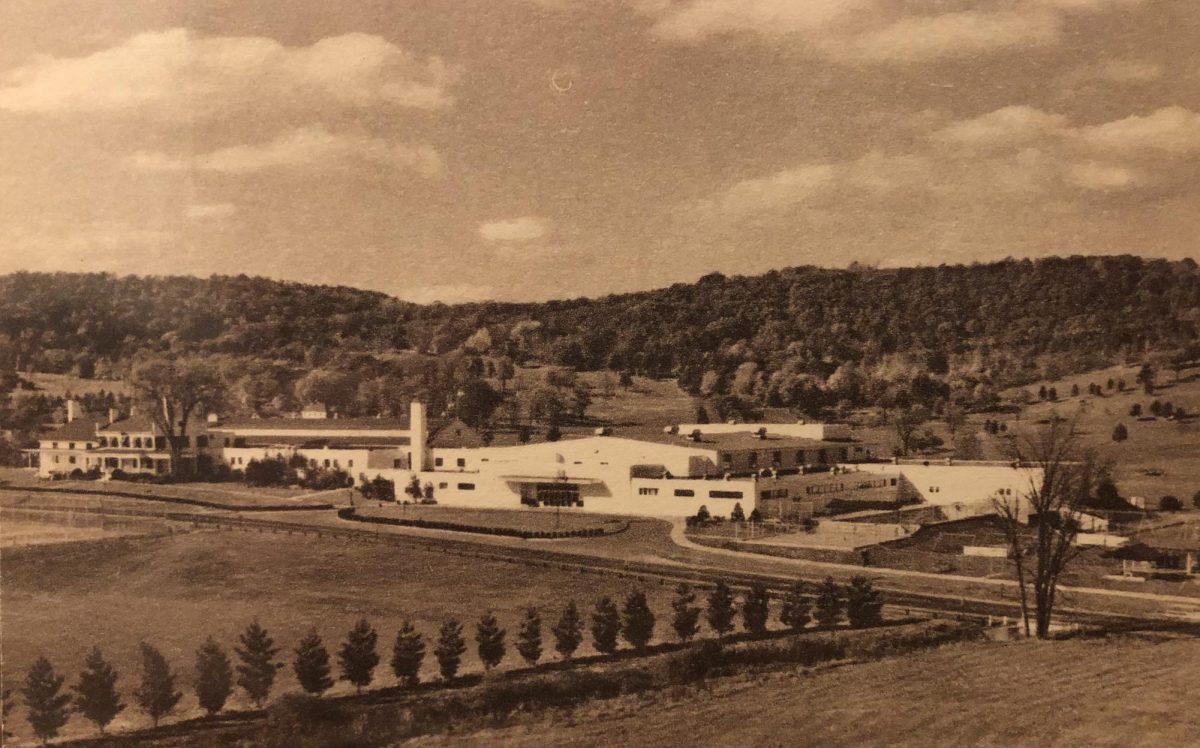

![College of Community and Public Affairs graduates cheering during the CCPA Commencement Ceremony. [Via Daily Photos at binghamton.edu]](https://sccvoice.org/wp-content/uploads/2023/05/Screenshot-2023-05-16-10.50.55-PM.png)
